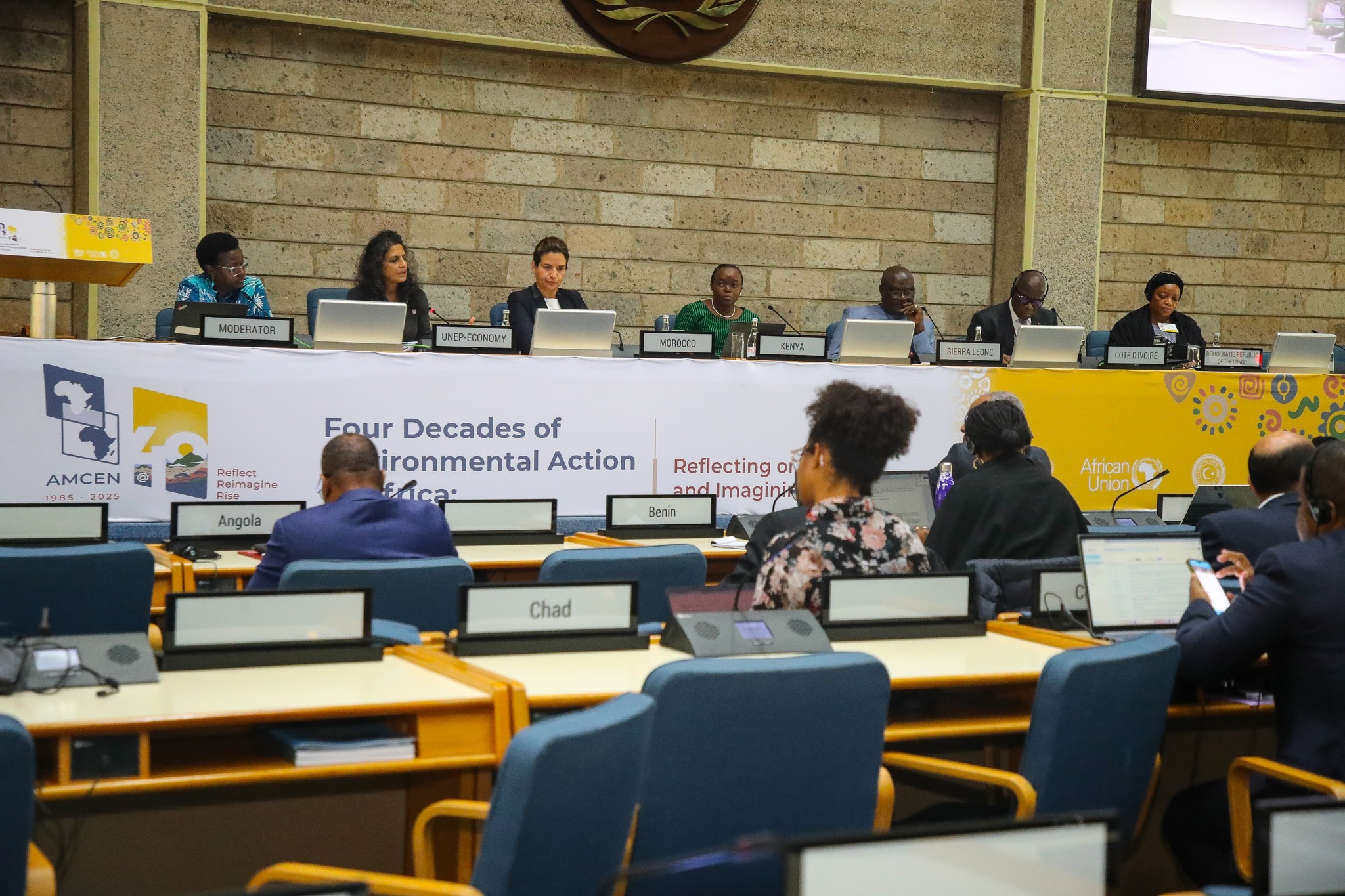

As the planet faces escalating crises of climate change, biodiversity loss and pollution, African nations are turning to a powerful continental platform to steer solutions—the African Ministerial Conference on the Environment.
The recently concluded 20th Ordinary Session of Amcen, held in Nairobi marked four decades of Africa’s leadership in environmental governance and offered a bold vision for the future.
Hosted at the United Nations Office
at Nairobi and sponsored by the government of Libya, the week-long
session gathered over 1,500 delegates, including 35 environment ministers from
53 African countries, alongside development partners, UN agencies, and key
stakeholders. Together, they celebrated Africa’s progress in environmental
conservation while recommitting to tackle the continent’s and the world’s
pressing environmental challenges.
Moses Vilakati, commissioner for agriculture, rural development, blue economy, and sustainable environment at
the African Union Commission, reflected on Amcen’s enduring legacy. “For
40 years, Amcen has helped Africa speak with one voice, shaping policies that
reinforce resilience and sustainable development,” he said. Yet, Vilakati
cautioned that despite progress, the journey is far from over. “We face rapid
population growth, the weaponisation of natural resources, and climate change.
We must close coordination gaps and transform Amcen from dialogue to decisive
action.”
Amcen was founded in Cairo in 1985, born from growing concern about the link between environmental degradation and poverty. It created a permanent forum for African countries to coordinate regional policies on environmental protection, natural resource management, and sustainable development.
The conference’s mission has always been clear: to
promote cooperation that safeguards Africa’s unique environment while
supporting the continent’s development goals.
At this milestone session, African
ministers adopted the 'Tripoli Declaration on Environmental Action in Africa',
setting a forward-looking agenda for 2025–2027. The declaration calls for
urgent regional cooperation to combat drought, biodiversity loss, and pollution
from plastics and chemicals. It also advocates for integrating circular and
blue economy principles—approaches that emphasise sustainable resource use,
innovation, and environmental justice rooted in science and collaboration.
President William Ruto
underscored the urgency during an unscheduled visit to the conference,
reaffirming Kenya’s commitment to environmental leadership and urging greater
African unity in confronting climate change. He called for moving beyond rhetoric
toward impactful, measurable action.
The declaration further reaffirms
Amcen as the continent’s chief forum for environmental governance, highligting
stable funding for Amcen’s Trust Fund and the United Nations Environment
Programme’s Environment Fund. It also calls for a regional multi-stakeholder
forum on chemicals and waste management, national and regional climate action
plans, and a legally binding protocol on drought under the United Nations
Convention to Combat Desertification. Crucially, the ministers
collectively rejected solar geoengineering as a climate solution.
On oceans and wetlands, Amcen
advanced new strategies, endorsing the Africa Ocean Governance Strategy and
pushing for national blue economy plans. The conference established African
groups of negotiators on oceans and wetlands and urged the ratification of the
Biodiversity Beyond National Jurisdiction (BBNJ) Agreement. It extended the
Africa Decade of Seas and Oceans (2026–2035), reinforcing the continent’s
commitment to marine conservation and sustainable use.
The session welcomed Nairobi as host
for the Intergovernmental Science-Policy Panel on Chemicals, Waste, and
Pollution, a move set to elevate Africa’s role in global environmental
governance.
Looking ahead, Amcen plans to
convene future sessions jointly with African finance ministers, linking
environmental imperatives with economic planning and budget allocations—a vital
step to mainstream climate resilience in national development agendas.
Outgoing Amcen president, Dr Fitsum
Assefa Adela, Ethiopia’s Minister of Planning and Development, called for a new
phase of ambition. “This is not just the end of a chapter but the start of a
transformative era. Amcen must evolve from dialogue to delivery.”
Dr Ibrahim Munir, Libya’s Minister
of Environment and incoming Amcen president, echoed this urgency: “Libya is
honoured to assume Amcen's presidency at this critical time. We must translate
commitments into concrete action across all sectors.”
Elizabeth Mrema, deputy executive director
of Unep, praised Amcen’s vital role and pledged continued support. “Unep stands
ready to help turn these important discussions into impactful solutions,” she
said. “The theme of UNEA-7 this December, ‘Advancing Sustainable Solutions for
a Resilient Planet,’ resonates strongly with Africa’s vision.”
The Amcen@40 Anniversary Report,
unveiled during the session, celebrated four decades of achievements—from
spearheading the Bamako Convention against hazardous waste to uniting Africa’s
voice in global climate negotiations, including the Paris Agreement and the
Kunming-Montreal biodiversity framework.
With renewed purpose, Amcen enters
its fifth decade as a powerful, united force driving Africa toward a just,
green, and resilient future—one where environmental stewardship and sustainable
development go hand in hand.


















